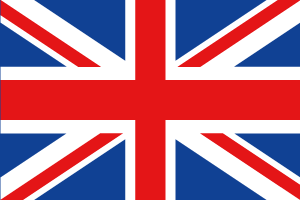Bladder Health
Reducing Fluid Retention Naturally
By Anna Sawkins
Feb 23, 2022

The balance of water in our bodies is carefully controlled as anyone who has drunk several pints will quickly find out. Fluid in, fluids out!
We constantly lose fluids during normal bodily functions such as respiration and sweating and if we fail to take in enough fluids we will suffer dehydration. We are all familiar with the dangers of dehydration. We forget to drink, we exercise, we have diarrhea, we take diuretics or we have had too much sun. Mostly, we can recover the situation quickly by drinking more fluid.
Other problems influencing fluid loss are very serious, such as blood loss, high temperature, diabetes, shock, inadequate antidiuretic hormone (a hormone that helps your kidneys regulate water in your body) and chronic kidney disease and are of medical concern.
Dehydration can be more serious in the young and the elderly who may not always feel thirsty or want to drink adequate amounts of fluid.
Symptoms of dehydration are likely to include:
- Being thirsty
- Dark yellow urine
- Feeling faint
- Feeling tired
Meanwhile, the problems of water retention are less familiar to us, and we don't think about it much until we notice swelling in the body. At that point, the delicate fluid balance has become disturbed and fluid has failed to be excreted effectively. The resulting build-up of fluid in the body can be temporary and relatively unimportant, or long lasting and an indicator of a serious medical condition.
If you have abnormal swelling anywhere in your body, do not try to treat yourself, see a doctor to diagnose the cause.
Causes of Water/ Fluid Retention
Fluid retention is basically trapped fluid in the body which presents as swelling or bloating. Serious problems commonly associated with fluid retention are heart disease, cardiomyopathy, liver disease and chronic kidney problems. Medications including anti-depressants, blood pressure tablets, the pill and steroids are also common causes. Menopausal women may experience water retention, and women are generally more susceptible to water retention because of hormone fluctuations.
Pregnant and premenstrual women may also suffer water retention but if it is excessive, speak to a doctor. Swelling, along with some other symptoms such as severe headache can signal more serious underlying problems. Preeclampsia (pregnancy-specific high blood pressure), and swelling along with chest pain or breathing difficulties is a medical emergency.
Water weight is also something people focus on when trying to lose weight. It's a complex subject because dieting can actually add to water weight, and drinking more water can help reduce water weight! Do not start any crash diets because calorie restriction increases water retention, but rather gradually reduce salt and sugar, and increase your water intake because if the body suspects dehydration is on its way, it will conserve what it has to make sure the body has adequate fluid to carry out its normal functions.
To lose excess water weight naturally:
- Don't diet, restricted calories increase water retention.
- Drink more water, eventually the body will balance itself.
- Exercise, gradually build up, the body conserves fluid round micro tears in the muscles.
- Sleep more and more regularly.
- Avoid diuretics unless prescribed.
- Eat only unprocessed food and ensure an adequate level of protein. Protein plays an essential role in fluid balance.
Most people will find that problems with fluid retention improve dramatically when they exercise more, eat a healthy diet, drink less alcohol and consume less salt.
 Free Shipping on orders $100+ CAD
Free Shipping on orders $100+ CAD
 Worldwide Delivery Available
Worldwide Delivery Available
 Rated 4.9 out of 5 on Trustpilot
Rated 4.9 out of 5 on Trustpilot



















